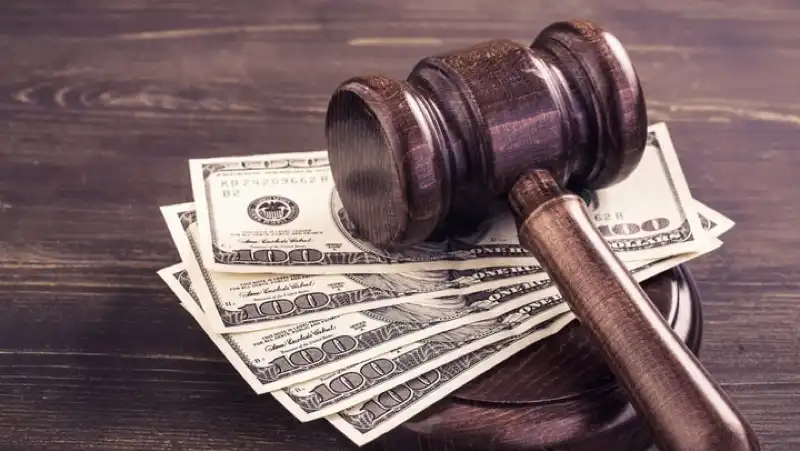
Compensatory damages are financial awards given to a plaintiff in a personal injury or civil case to cover the losses they have incurred as a result of the defendant’s actions. These damages aim to make the injured party “whole” again by reimbursing them for expenses, losses, and suffering caused by the injury or harm. Compensatory damages are typically divided into two main categories: economic and non-economic damages. At 770GoodLaw, we work to ensure our clients receive full compensatory damages for their injuries, covering both tangible and intangible losses.
Types of Compensatory Damages
Compensatory damages can be categorized based on the nature of the loss, with specific damages tailored to address each aspect of harm suffered by the plaintiff. Common types of compensatory damages include:
- Economic Damages: These are measurable financial losses that the plaintiff incurs as a result of the injury. Examples of economic damages include:
- Medical Expenses: Costs for surgeries, hospital stays, rehabilitation, prescription medications, and any future medical treatments.
- Lost Wages: Compensation for income lost due to time off work during recovery, as well as future lost earning capacity if the injury affects long-term employment.
- Property Damage: Reimbursement for repairs or replacement of damaged property, such as vehicles or personal belongings.
- Non-Economic Damages: These are intangible losses that do not have a clear monetary value but significantly impact the plaintiff’s quality of life. Examples of non-economic damages include:
- Pain and Suffering: Compensation for physical pain and emotional distress experienced as a result of the injury.
- Loss of Enjoyment of Life: Damages for the diminished ability to enjoy hobbies, activities, or day-to-day life due to the injury.
- Loss of Consortium: Compensation for the negative impact the injury has on the plaintiff’s relationships with family members, including loss of companionship and support.
Purpose of Compensatory Damages
The primary purpose of compensatory damages is to restore the plaintiff to the financial, physical, and emotional state they were in before the injury occurred. Key objectives of compensatory damages include:
-
Providing Financial Recovery: Compensatory damages help cover the plaintiff’s medical expenses, lost income, and other financial losses, preventing them from bearing the cost of an injury caused by another party’s actions.
-
Acknowledging Non-Financial Losses: Compensatory damages recognize the emotional and psychological impact of the injury, offering compensation for pain, suffering, and loss of enjoyment of life.
-
Promoting Accountability: By awarding compensatory damages, the court holds the defendant accountable for the harm caused, deterring similar negligent behavior in the future.
Calculating Compensatory Damages
Calculating compensatory damages requires a detailed assessment of the plaintiff’s losses, with different methods applied to economic and non-economic damages:
- Economic Damages Calculation: Economic damages are calculated based on actual costs incurred, using medical bills, receipts, pay stubs, and property repair estimates. Future economic losses, such as long-term medical care or reduced earning capacity, are often estimated based on expert testimony and actuarial data.
- Non-Economic Damages Calculation: Non-economic damages are more subjective and may be calculated using a “multiplier” method, where the economic damages are multiplied by a factor (typically between 1.5 and 5) based on the severity of the injury. Alternatively, a “per diem” method may assign a daily monetary value to the plaintiff’s pain and suffering for the duration of recovery.
Factors That Influence Compensatory Damages
The amount of compensatory damages awarded can vary widely depending on several factors, including:
-
Severity of the Injury: More severe or permanent injuries often result in higher compensatory damages to account for long-term care and life adjustments.
-
Impact on Quality of Life: Injuries that significantly alter the plaintiff’s lifestyle, career, or personal relationships may lead to increased non-economic damages.
-
Clear Evidence of Losses: Well-documented expenses and a strong demonstration of intangible losses can help maximize compensatory damages.
-
Degree of Fault: In cases involving shared fault, the plaintiff’s compensation may be reduced based on their percentage of responsibility under comparative negligence laws.
How 770GoodLaw Assists Clients in Securing Compensatory Damages
At 770GoodLaw, we are committed to ensuring that our clients receive comprehensive compensatory damages that reflect the full impact of their injuries. Our attorneys provide thorough support in calculating and documenting damages, negotiating with insurers, and advocating for fair compensation. Our approach includes:
- Evaluating All Losses: We assess the full scope of our clients’ economic and non-economic damages, ensuring that all expenses and impacts are accounted for.
- Gathering Detailed Evidence: Our team collects medical records, pay stubs, property repair estimates, and other documents to substantiate our clients’ claims.
- Working with Experts: In cases involving future losses or non-economic damages, we consult with medical, vocational, and economic experts to establish accurate valuations.
- Negotiating with Insurers and Opposing Counsel: We handle all negotiations, advocating for a fair settlement that covers the total damages our clients have endured.
- Providing Court Representation: If a fair settlement cannot be reached, we represent clients in court, presenting a compelling case for maximum compensatory damages.
Importance of Legal Representation in Compensatory Damages Claims
Navigating compensatory damages claims requires a detailed understanding of financial calculations, evidence requirements, and negotiation tactics. Skilled legal representation ensures that plaintiffs receive the full value of their compensatory damages, covering all financial and non-financial losses. At 770GoodLaw, we provide dedicated support for clients pursuing compensatory damages, guiding them through each stage of the legal process with expertise and care.
Why Choose 770GoodLaw for Compensatory Damages Claims
Our commitment to Relentless Reliability and Sincetegrity drives us to provide comprehensive, client-centered support in compensatory damages claims. At 770GoodLaw, we work tirelessly to protect our clients’ rights and secure the compensation they deserve for their injuries and losses.
